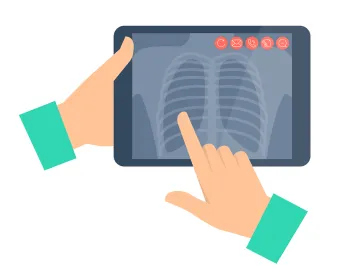In a recent press release, the U.S. Department of Health and Human Services Office of Inspector General (HHS/OIG) announced five additional guilty pleas relating to a $1 billion telepharmacy fraud scheme. However, unlike many health care fraud cases, this particular case was investigated over the course of three years by an interagency team comprised of personnel from HHS/OIG, the U.S. Department of Justice (DOJ), the U.S. Food and Drug Administration (FDA), the U.S. Postal Services (USPS), the Federal Bureau of Investigation (FBI), the Office of Personnel Management (OPM), and the Department of Homeland Security (DHS). The sheer depth of the investigation, as well as the breadth of the federal agencies involved, indicate that HHS/OIG and other federal agencies are becoming increasingly aggressive in enforcing health care fraud, waste, and abuse laws in the pharmacy and telemedicine industries.
At its core, the suspect business model involved a telemarketing/pharmacy entity that solicited patients’ insurance information using a platform to arrange for telemedicine visits with physicians. During these telemedicine visits, physicians would issue prescriptions for items such as pain creams, vitamins, and other prescription drugs, which the telemarketing/pharmacy entity then sold to pharmacies for mail-order fulfillment at marked-up prices. The sale and fulfillment of these prescriptions resulted in substantial volumes of false claims being filed with pharmacy benefits managers (PBM), and also generated a quid pro quo kickback for the telemarketing/pharmacy entity (i.e., the pharmacy would pay the telemarketing/pharmacy entity for the opportunity to fill lucrative telemedicine prescriptions). The individuals involved in the scheme were primarily located in the state of Florida, although individuals and entities in Tennessee, Mississippi, and Texas were also implicated.
Although this particular OIG case is similar to recent pharmacy fraud cases involving marketing agencies, the case suggests the federal government is growing increasingly sophisticated in the manner in which it investigates and enforces fraud, waste, and abuse laws. For example, individuals involved in the case were charged with an extensive set of crimes including, but not limited to, mail fraud, conspiracy to commit health care fraud, wire fraud, and the introduction of misbranded drugs into interstate commerce. Moreover, the individuals initially faced possible prison terms of up to 33 years for their conduct, and one individual also faced over $24 Million in restitution. Sentencing of these individuals will take place in October 2021.
In light of this case, it is important for stakeholders in the pharmacy and telemedicine industries to understand that seemingly innocuous activity can result in significant penalties. Further, participation in health care fraud schemes, even unknowingly, can result in significant criminal, civil, and administrative sanctions as a result of multi-agency investigative activities.
It is crucial stakeholders in the pharmacy and telemedicine industries educate themselves on, and observe, compliant business arrangements and practices, and periodically evaluate whether their current and future business arrangements are susceptible to possible fraud, waste, and abuse investigation and enforcement. Further, industry stakeholders should also consider the benefit of conducting enterprise-wide compliance training and adopting policies and procedures in order to prevent fraudulent activity.





 />i
/>i
